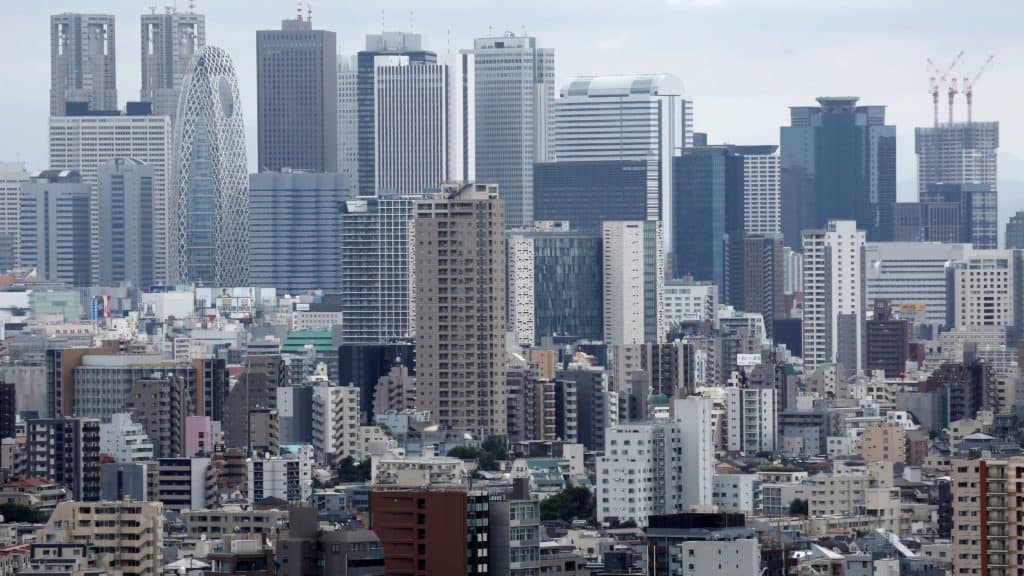
Aberdeen Standard has put its Japan reseidential fund on hold
The UK’s Aberdeen Standard Investments (ASI) has put its Japan residential tie-up with Sumitomo Mitsui Trust Bank (SMTB) on ice, as the property market in the world’s third largest economy comes under pressure from a recession triggered by the COVID-19 pandemic.
The asset management arm of London-listed Standard Life Aberdeen told Mingtiandi late this past week that it had decided to put off launching the closed-end strategy, which is said by local Japanese media to have targeted a portfolio size of JPY 100 billion ($930 million), until uncertainty over the impact of COVID-19 had cleared.
The postponement comes one year after the Scottish fund manager announced it had established the joint venture with Japan’s fifth largest bank to invest in the country’s residential sector, with ASI aiming to co-invest in the fund as it raised capital from institutional investors, according to Asian Investor, which first reported the delay.
“We took the decision at the beginning of the crisis in Japan to delay the launch, and this has been well-supported by our investors and our partner SMTB,” an ASI spokesperson said.
Playing for Time
Adopting a value-add investment strategy, the joint venture was set up to acquire multifamily residences, senior housing, student accommodation and corporate housing, targeting either newly built properties or older residential buildings that can be renovated, repositioned or converted.

Cushman & Wakefiled’s Hideaki Suzuki said Japan’s residential sector may not be immune to the recession
With the fallout of COVID-19 on Japan’s residential sector still not apparent, ASI is holding back on fund raising and has delayed launching the strategy indefinitely.
“This also allows us more time to better assess the post-COVID market opportunities, which we anticipate will take some time to fully come through in what are typically more resilient residential assets,” the ASI spokesperson said.
Delaying a Tie-up with a Japanese Banking Powerhouse
In announcing the joint venture in June last year, ASI said that it would co-invest an unspecified amount in the fund with SMTB, with the Japanese firm’s Sumitomo Mitsui Real Estate Investment Management subsidiary to provide asset management services for any properties acquired.
The joint venture, which also aimed to invest in other mature markets in Asia Pacific, was expected to start acquiring assets last year, according to a report in the Nikkei Asian Review.
The Edinburgh-based fund manager, which managed $47 billion in real estate assets as of June last year, made its biggest move in the region last February when it paid an undisclosed amount to acquire Hong Kong-based Orion Partners.
That acquisition brought Orion’s approximately $900 million of direct real estate investments in aged care, retail and offices across Asia Pacific under ASI’s control, including properties in Japan, Korea and Hong Kong.
Taking a Slice of Japan’s Defensive Residential Sector
While Aberdeen Standard and Sumitomo Mitsui Trust have hit pause, other Investors have been piling into the Japanese residential sector this year, attracted by the stable returns the asset class provides.
Just two weeks ago, Allianz Real Estate acquired a portfolio of multifamily properties in Tokyo, paying €110 million ($124 million) for 11 newly developed rental apartment properties within the Japanese capital’s 23 core wards.
Nuveen Real Estate has also taken aim at Japan’s residential property in 2020, with the firm spending $140 million in March to purchase ten multifamily assets in Tokyo and Osaka on behalf of its open-ended Asia Pacific Cities fund, after acquiring seven properties in January for $224 million.
Crowding into a Safe Haven
Low borrowing costs and the stability of the residential sector in Japan have attracted investors to the sector during the uncertainty of COVID-19, according to Hideaki Suzuki, Cushman & Wakefield’s head of research in Japan.
“People tend not to move during a recession as housing rent is a non-discretionary expense,” Suzuki told Mingtiandi. “Japan also has one of the largest multifamily investable asset pools in APAC, which offers great liquidity and accessibility for foreign capital”.
In the first three months of the year, average multifamily rents in Tokyo rose 5.8 percent compared with the same period in 2019, to reach JPY 4,155 per square metre per year, which property consultancy Savills said demonstrates a resilience reminiscent of the sector’s stability in the wake of the 2008 financial crisis.
Despite these encouraging numbers, Cushman & Wakefield’s Suzuki warned that Japanese multifamily assets may not be immune to the pandemic.
“For now, and in the near term, rental prices are likely to be stable, but rents will come under pressure if the situation in the country deteriorates further and begins to have an impact on people’s income and how much they can afford to pay in rent,” the Cushman & Wakefield research chief noted.
Leave a Reply